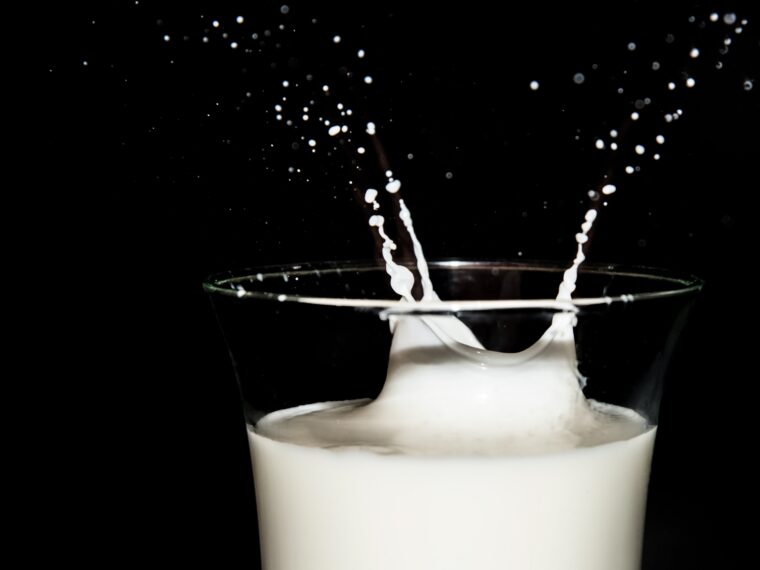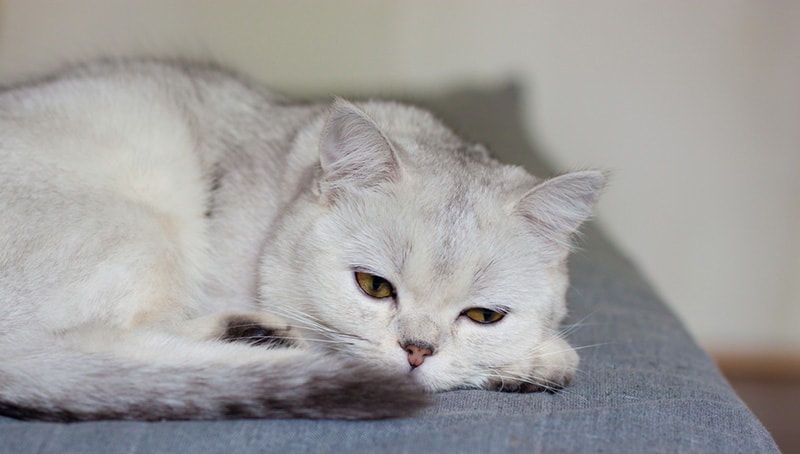
Plant-based milk seems to be all the rage these days. For humans, plant milk options are lauded as healthier and an excellent option for those people who are lactose intolerant. And most of us know that the majority of cats are lactose intolerant, so would giving them plant-based milk be a good alternative?
While some kinds of plant milk are better than cow’s milk for cats, they don’t offer any real nutritional benefits and can even cause an upset stomach in your cat.
We will discuss the different kinds of plant milk, so you know which are safest for your cat if they accidentally drink some and why you shouldn’t give your cat any milk, plant or otherwise—with the exception of cat’s milk, of course.
What Exactly Is Plant Milk?
There are so many different kinds of milk to choose from. Of course, there’s all of the animal milk we’re familiar with – cow and goat, and even camel!
Plant milk comes from plants, of course, as well as nuts, which are essentially plants as well. The following are most of the plant milk options available:
However, plant milk isn’t really true milk. Most plant milk is made by combining water with the plant, milling it, and then straining it. Sometimes enzymes are added during the process, but the “milk” is just the liquid left behind after straining.
Plant milk is a great option for people with lactose intolerance or if they can’t drink it for religious reasons. Of course, many vegans and some vegetarians avoid cow’s milk as well.

Can You Give Plant Milk to Cats?
First, we need to look at the cat’s diet in order to understand why cats shouldn’t drink plant milk. Cats are carnivores, and more specifically, obligate carnivores, which means they rely solely on meat to survive and thrive. They also have a hard time digesting plant and vegetation matter.
This automatically tells you that cats won’t really benefit from drinking any kind of plant-based milk. So, you don’t have to feel bad about not giving plant milk to your cat if you’re concerned about their health.
If you are, in fact, concerned about your cat’s diet, this is when you need to seek help from your vet. You should also be aware that macadamia nuts are toxic to dogs. And while there is apparently no data about whether these nuts are safe for cats, it’s best to avoid them altogether.
But if you’re wondering about animal milk, since it’s an animal-based protein, most cats are lactose intolerant. We’ve been inundated with scenes of cats drinking milk or cream from saucers in movies and cartoons, but this is inaccurate. As much as your cat enjoys dairy, it’s just not good for them.
What to Look Out For When Your Cat Drinks Milk
If your cat did sneak a drink from your plant milk, they will probably be fine, though in rare cases, they might experience stomach upset.
If your cat exhibits any of these signs after drinking some milk (dairy or plant), it is best to err on the side of caution and take them to see your vet.

Read the Label
The basic rule you should follow when it comes to your cat’s diet is to not give them any food made specifically for humans.
If your cat manages to lap up a small amount when your back is turned, it’s good practice to read the product’s label. If your cat has a bad reaction to it, you can let your vet know what the ingredients are, so they know how to treat your cat.
Certain plant milks contain ingredients not recommended for cats, such as sweeteners, gluten, artificial flavors, and stabilizers.
When reading a label, it’s important to note that the ingredients are placed in order of quantity. This means the first ingredient on a label has the most substantial amount in the product, the second ingredient has the second highest, and so on.
Are There Any Plant Milk That Is Safe for Cats?
Technically, some plant milk might be okay, but the added ingredients like sugar and oil are the biggest problems. Things like oats, almonds, cashews, rice, and soy are generally safe for cats in small amounts. Still, again, they don’t offer any real nutritional benefit to the cat’s diet.
Read the label before giving your cat any plant milk. Speak to your vet or vet nutritionist about your cat’s diet before adding any new food, particularly if it is made for humans.
Conclusion
Plant milk is a viable alternative for humans but is not recommended for cats. Cats must eat a diet that consists primarily of animal protein, which is critical for their health and well-being. And if you’re thinking about giving your cat some human food but aren’t really sure if it is safe for them, the best option will always be to not give it to your cat.
If your cat drinks some of your milk, dairy or plant, keep an eye on them for the next 24 hours. If they seem to be in some kind of distress, see your vet. Don’t make it a habit to give milk to your cat as a treat, even if they don’t get sick from it. If your cat is obsessed with milk and you can’t deny them this guilty pleasure, you should know that there is cat milk available on the market. You can offer this milk safely as an occasional treat. There are many better and safer treats out there that are made for cats.
You may also want to read:
- 10 Best High-Protein Cat Foods- Reviews & Top Picks
- Can Cats Eat Pork? Vet-Reviewed Facts & Safety Guide
Featured Image Credit: JumpStory








